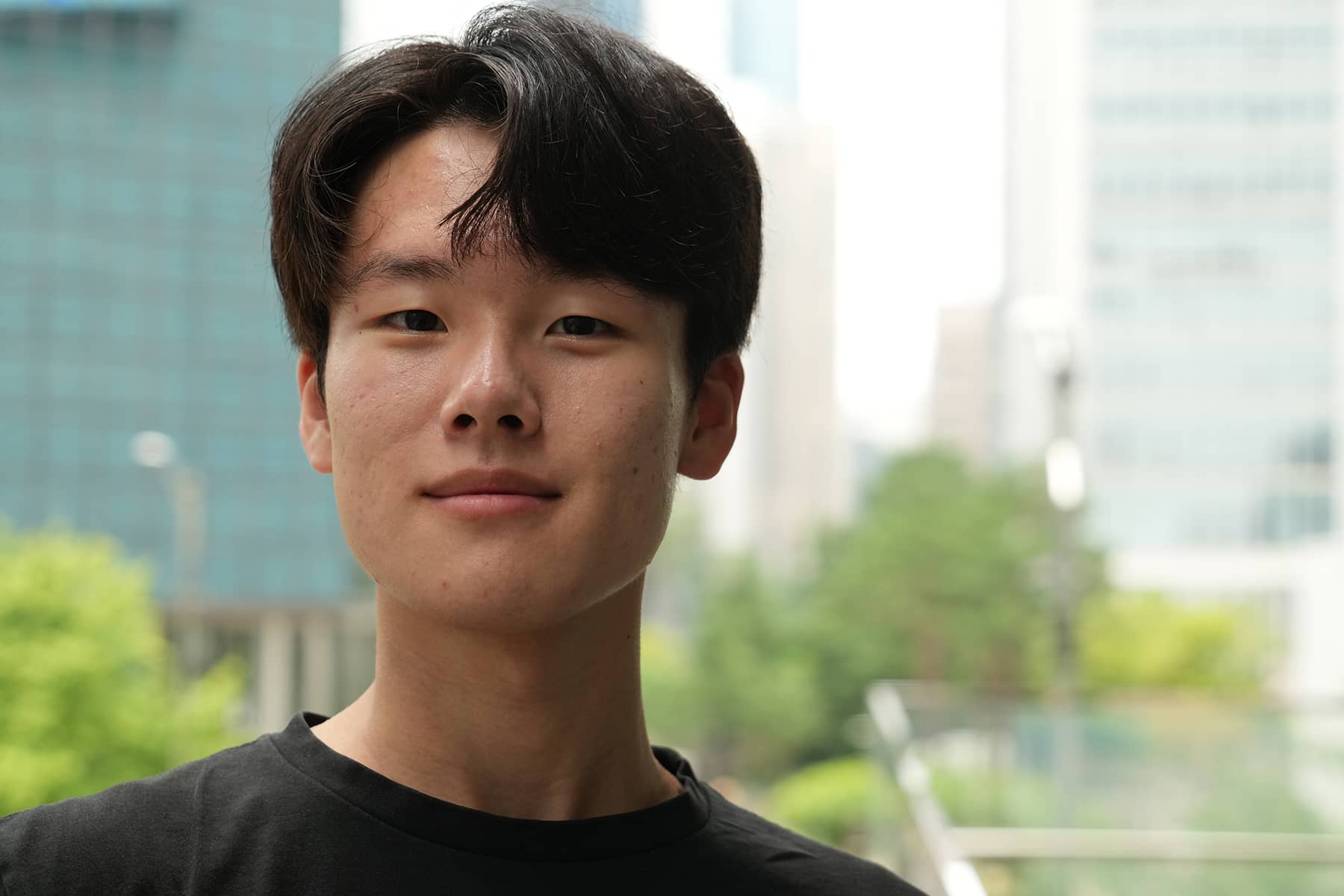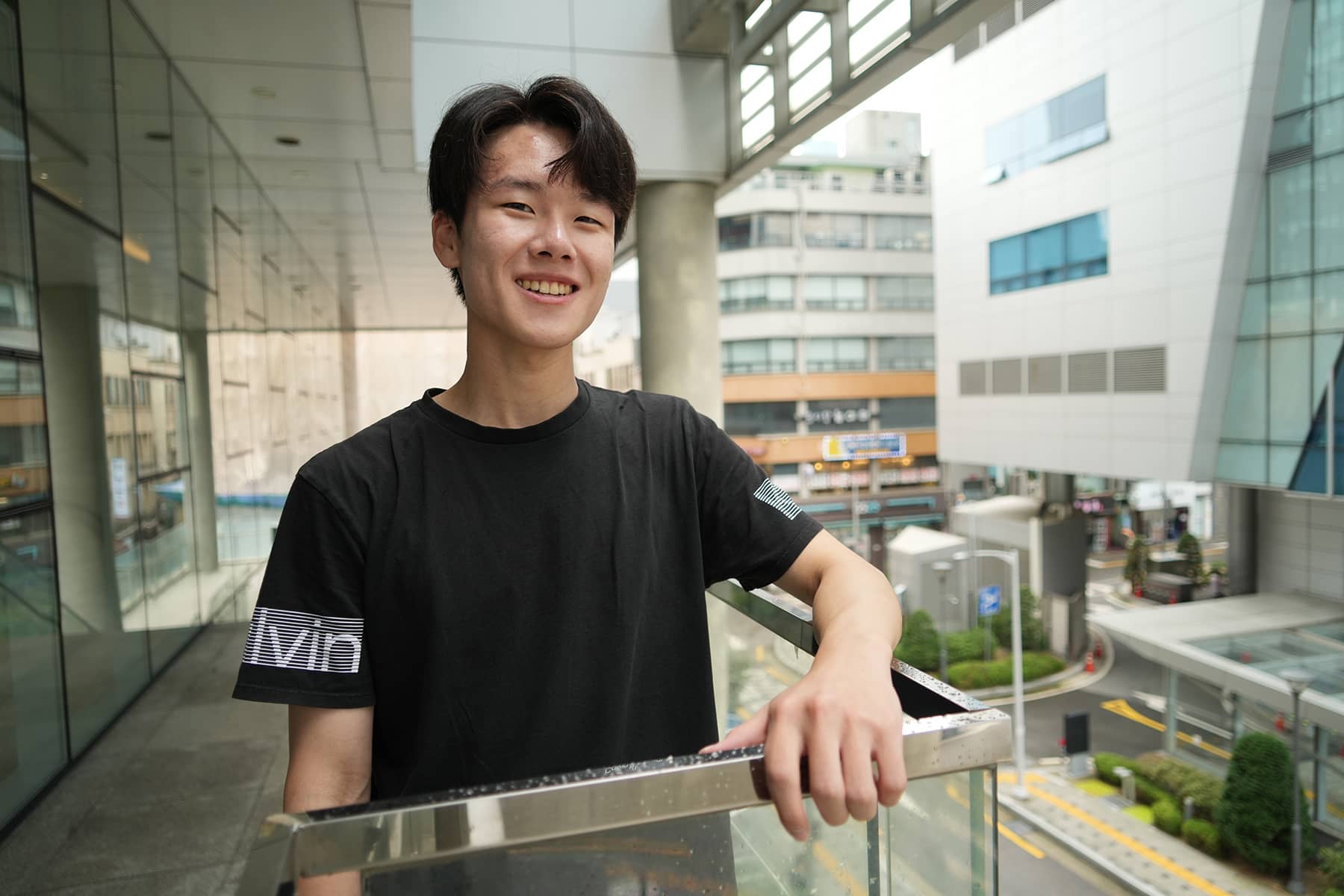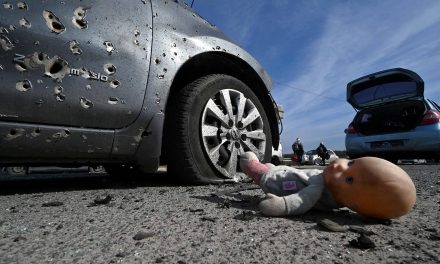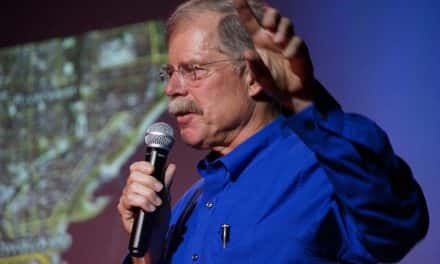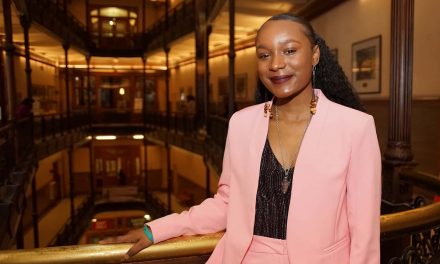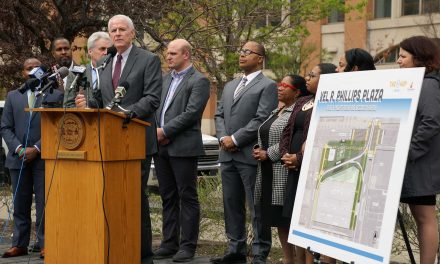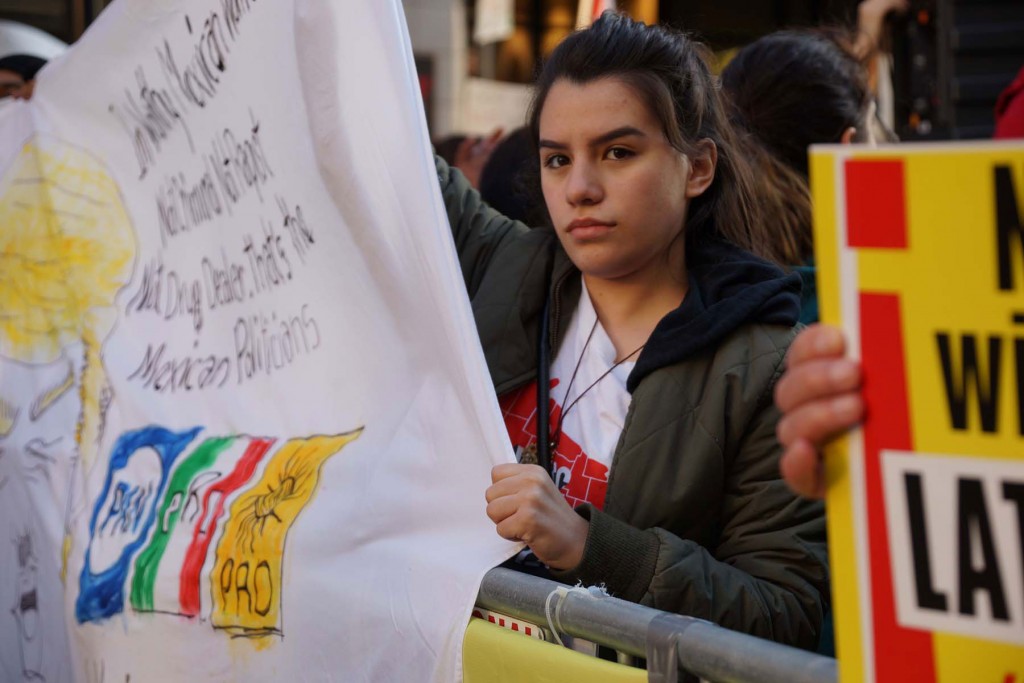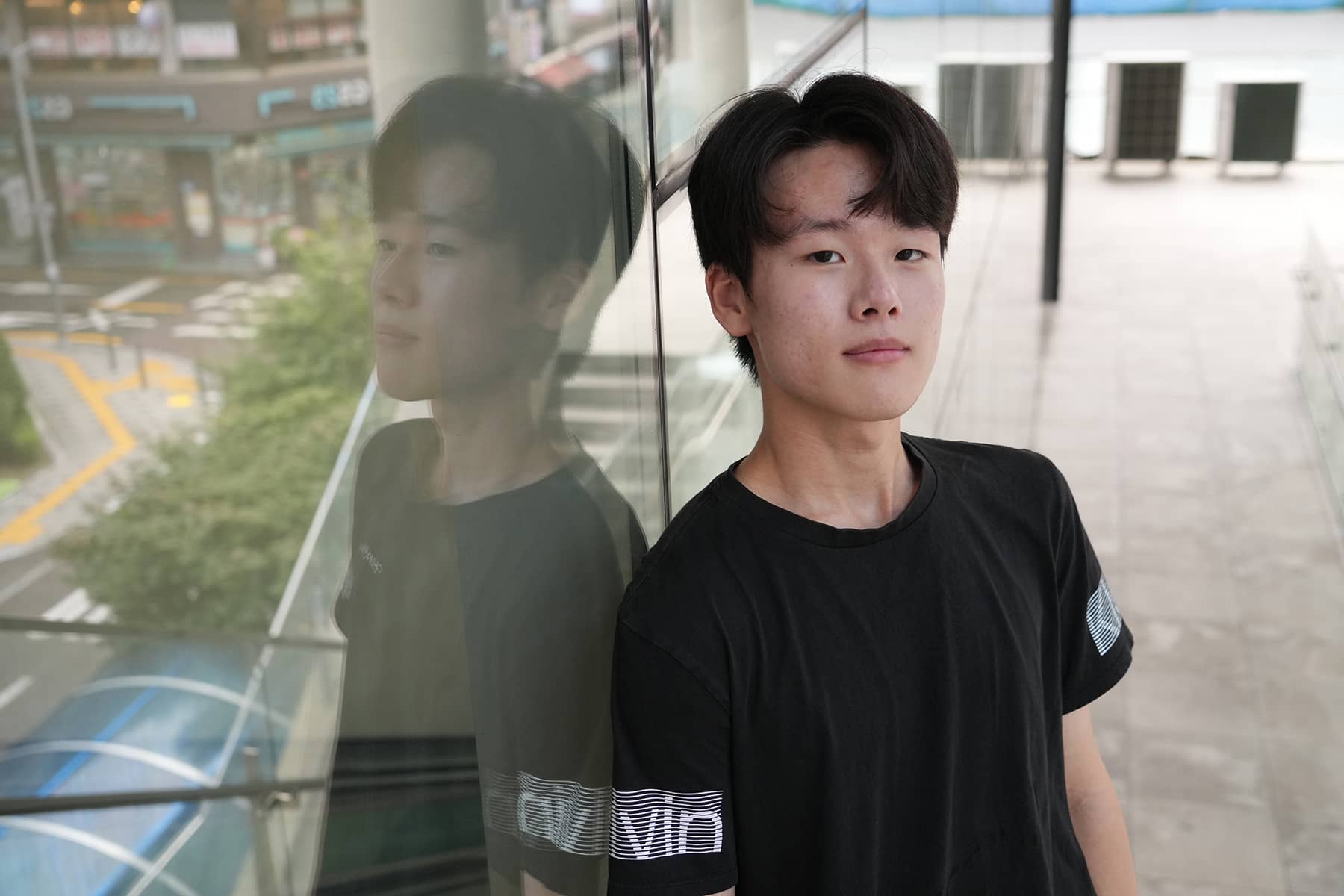
Undergraduate students face a rite of passage between the worlds of youth and adulthood when they leave home to attend college. Hoyoon Min, a student at the University of Wisconsin-Milwaukee, has the extra complexity of navigating two literal worlds. On one side is the United States, where he embarked on an educational journey that would shape his future. On the other is his home country of South Korea, where tradition and duty call.
During an extensive interview in Seoul with Milwaukee Independent, Min shared his experiences growing up in South Korea, his transition to life in Milwaukee, and the challenges he faced while balancing cultural expectations, academic pursuits, and a sense of belonging in both countries.
Born in 2004 in Daejeon, South Korea, Hoyoon Min spent his early childhood years in his hometown until the first grade. His family later moved to Jeonju where he continued his schooling. Many of his early memories from that period included enjoying time with his parents and younger sister, who he would often play with at nearby parks.
Reflecting on his childhood, Min spoke fondly of his family, particularly their close-knit gatherings during major holidays, such as Chuseok (추석) – the Korean Harvest Festival.
“Chuseok is like a Korean version of Thanksgiving,” said Min. “Family and relatives gather in one place, have meals together for a day or two. It’s really nice to visit with my grandparents because they live in a different city.”
One of Min’s favorite experiences from his youth occurred in 2011 when Chuseok fell on his birthday, because of its alignment with the lunar calendar.
“All my family and relatives celebrated my birthday on that day,” said Min. “It’s one of the happiest and most special memories I have from when I was growing up.”
As a child of the 2000s, Min witnessed the rapid transformation of technology and culture in South Korea. He recalled the dominance of CyWorld, a now-defunct social media platform popular in South Korea before the advent of global giants like Facebook or Twitter.
“CyWorld was like the Korean version of Facebook. My parents used it to upload photos of me and their daily lives. Then one day, it just disappeared, sometime in the late 2000s,” said Min. “We also had a cassette tape player and VCR. I had a CD player, and my dad used to watch some films on DVD. So I had a little experience with the ‘old’ technology that my parents used. But then by around 2012 it was all gone.”
Min’s realization of the importance of learning English came during his first trip abroad in 2015, when his father took him to France. It was a trip that would forever change his perspective on language and communication.
“That trip to Paris was the turning point of my life. I realized that English is something important if you want to explore the world,” said Min. “I didn’t know much French, and neither did my dad, but we managed to get by using English.”
That awakening spurred Min to focus more seriously on his English studies. Starting back in the third grade, he was introduced to English as part of South Korea’s education system. But it was not until the Paris trip that he fully grasped the value of becoming proficient in another language, particularly English.
“Paris showed me there was a world totally different from Korea, with a language, culture, and even a transportation system so unlike what I knew,” said Min. “That’s why I realized how important language was, and why I needed to learn English to communicate with people from all around the world.”
Min’s eventual journey to the United States began in high school when he learned about the University of Wisconsin-Milwaukee (UWM) through a partnership between his boarding school and the Midwest institution. His decision to apply to UWM was based on a mix of academic and financial factors.
“I heard about UWM from a teacher, and I felt like it was a good fit,” said Min. “I liked what I saw about the city, and the tuition was relatively low compared to other places like Madison or Chicago.”
In 2022, Min moved from South Korea to the U.S., which was also his first time to visit the country that would be his adopted home while attending UWM. Landing at John F. Kennedy International Airport (JFK) in New York for his connecting flight to Wisconsin, he faced an immediate challenge – one of his bags was lost during the flight.
“The first thing I realized was that the airline didn’t deliver my luggage. That was really confusing. I was also alone in the airport and it made me feel depressed,” said Min. “So my first experience after arriving in America was the loss of my most important possessions. It wasn’t the best way to start my first trip to the U.S.”
Despite the rocky start, Min’s arrival in Milwaukee was made easier thanks to a professor from UWM who had been a colleague of his father during their graduate studies in Korea.
“He picked me up from the airport and took me to a restaurant,” said Min. “That helped me a lot in adjusting to my new surroundings. Something that simple, just having a meal, made me feel comfortable.”
Such a personal connection allowed him to develop a small support network, as Min embarked on his studies in Milwaukee. And while Min appreciated the assistance to settle in, his early days in Milwaukee were still marked by feelings of isolation and uncertainty.
“I was alone in the dorm on the first day, so I just unpacked my stuff right away,” said Min. “Then on the next day, I went to an event that CIE (the Center for International Education) hosted. It was the orientation for international students. So, I learned a lot of information from it.”
The professor, who was a friend of his father, continued to help him adjust. He also introduced Min to a Korean church in Oak Creek.
“That pastor hosted regular youth group meetings, which included undergraduate students and some young adults. When I first met the pastor, it was at his home. He had invited me to a group dinner,” said Min. “I first met a lot of my friends there. And then I visited the church, which was the start of my networking in Milwaukee. A lot of my college friends also attended services there too.”
Adapting to academic life in the U.S. came with its own set of challenges. Enrolled in five courses for 15 credits during his first semester, Min found his English for Academic Purposes (EAP) course particularly hard.
“I originally registered for just a normal English course. It was English 102, and a class everyone at UWM had to take. But after that, a faculty member in the English department emailed me that, because I was an international student, I would not be able to survive in the class,” said Min. “So I enrolled in a level easier than English 102, which was EAP 101. It turned out to be the most demanding course I have ever had in my whole life.”
Other courses, such as macroeconomics, were far less of a challenge for Min. Studies occupied most of his time, and before long he felt like he fit in as much as he could.
“The other students neither welcomed me nor made me feel that I didn’t fit in. They thought of me as just a normal student. Nothing special or bad about it,” said Min. “I also saw many other international students. Milwaukee has so much diversity. So I don’t think people really cared about my nationality or ethnicity.”
As his first college semester gave way to summer, Min was ready to enjoy all the social events that Milwaukee had to offer.
“I like the weather in Milwaukee. Before going to the U.S., I heard Milwaukee was super cold because it’s in the Midwest. So I had to prepare a lot of gloves, boots, and a winter coat,” said Min. “And then I arrived in Milwaukee, and I felt it wasn’t that cold. Probably thanks to the global warming. But the reason I miss the weather there is that Milwaukee conditions are perfect in the summer, like in Korea.”
He also enjoyed exploring Milwaukee’s cultural offerings, including Summerfest, the city’s iconic music festival. He attended with his Korean, Korean American, and American friends.
“I went to Summerfest last year and this year, before I came back to Seoul. It was fun to attend a lot of shows and events there,” said Min. “This year there was a show hosted by a Korean celebrity, she was a former idol in Korea. She was super popular when I was young, so I don’t remember her well. I somehow ended up meeting her, and I just nervously said hello.”
One aspect of life in Milwaukee that stood out to Min was the city’s passion for sports. He attended games at both the Fiserv Forum and American Family Field, experiencing Milwaukee’s love for athletic competition firsthand.
“It’s super cool to have both a basketball arena and a baseball stadium in one city,” Min said.
He noted a stark contrast between the fan culture in Korean and American baseball. In Korea, the cheering is a lot more active.
“We have at least five cheerleaders dancing all the time, and we have songs for each player for when they score,” said Min. “So I think cheering culture is extremely different. In Korea, it’s more loud and more energetic.”
After a year and a half of living in Milwaukee, Min’s time in the U.S. was cut short by an unavoidable obligation — his mandatory military service. As a man in South Korea, Min is required to complete at least 18 months of military service.
While he had initially hoped to join the KATUSA program (Korean Augmentation to the United States Army), which would allow him to serve at a U.S. Army base in Korea, but logistical challenges prevented him from applying.
“I was in the U.S. when the application period changed. It was always done in early September, but this year the current government just changed it to early July,” said Min. “So I couldn’t apply for it, because I also had to complete my medical check in Korea.”
Instead, Min planned to join the South Korean Army, which had the shortest service term of 18 months.
“The most common advice I’ve heard is, ‘Don’t go to the military if you can avoid it.’ I just spoke with a friend who has experience in both the Army and Navy, and they told me that the best way to survive in the military is to do exactly what you’re told,” said Min. “He said it’s very authoritarian, and if you stand out, they’ll make you do all the tasks you don’t want to do. It’s rare to hear anything positive about the experience of military service.”
Although the thought of his military obligation weighed heavily on Min, he remained focused on his plan to return to UWM after completing his national duty.
“I had a conversation with a staff member at the Center for International Education (CIE). He was aware that all Korean males are required to serve in the military and informed me that I could request an early withdrawal from the university for that reason,” said Min. “I wasn’t sure about the exact process, but I learned that I could submit a form to request gap years, which they accepted. So, I’m officially taking a couple of gap years now. Once I finish my military service, I’ll apply to return to UWM.”
Min returned to Korea in July after finishing his sophomore year. As Min prepared for his military service to begin, his primary hope was for peace and stability on the Korean Peninsula, with the eventual goal of reunification between North and South Korea.
However, Min acknowledged that it would be a long and difficult process, comparing it to Germany’s ongoing efforts to fully integrate its former East and West regions.
“Even Germany hasn’t completely unified, and it’s been decades,” said Min. “So I think it will take a long time for Korea as well. But I hope we can do it peacefully.”
While Germany is politically unified and functions as a single country, the process of complete social and economic integration, following the reunification of East and West Germany in 1990, is still ongoing.
Min’s greatest concern for South Korea and its future is the unpredictability of North Korea’s leadership.
“The regime is often unpredictable, and sometimes their actions are difficult to accept. For instance, last year the Supreme Leader declared that they have no intention of unifying with the South, which goes against the principles of former leaders,” said Min. “This uncertainty is a constant concern.”
Another worry was his nation’s declining birth rate. South Korea’s population has been shrinking, and the country needed more people to support the system. Additionally, there was the growing issue of polarized perceptions among people.
“We’re seeing increasing conflicts between genders, generations, and political orientations, and these divisions are becoming more severe over time,” said Min. “It feels like it’s up to our generation to work towards integrating and unifying society.”
The U.S. military presence in South Korea has long been a subject of debate, and Min had strong opinions on the matter. While some of his friends believed that the U.S. bases provoke North Korea and should be removed, Min supports their continued presence.
“I like having U.S. bases in South Korea. Many of my friends are in favor of keeping the bases too,” said Min. “Other friends are not happy with having U.S. bases here, because they think the bases and military exercises push North Korea to react. But I believe having the U.S. bases here is a clear deterrent against future North Korean attacks.”
Despite the disruption to his education, Min remains determined to fulfill his obligation to protect his country. Even as he prepares to fulfill his military service, Min already looks forward to returning to Milwaukee and continuing with his life there. He said he learned a lot from his time in Milwaukee. It was his hope that others could understand Korea better through his experiences.
“K-pop and K-dramas don’t fully represent Korean culture or life. I encourage people in Milwaukee to communicate with the Korean population and learn directly from them. If they have the time, visit Korea in the spring or fall,” Min added. “Don’t just rely solely on what you see in the media, there’s so much more to Korea.”
- Exploring Korea: Stories from Milwaukee to the DMZ and across a divided peninsula
- A pawn of history: How the Great Power struggle to control Korea set the stage for its civil war
- Names for Korea: The evolution of English words used for its identity from Gojoseon to Daehan Minguk
- SeonJoo So Oh: Living her dream of creating a "folded paper" bridge between Milwaukee and Korean culture
- A Cultural Bridge: Why Milwaukee needs to invest in a Museum that celebrates Korean art and history
- Korean diplomat joins Milwaukee's Korean American community in celebration of 79th Liberation Day
- John T. Chisholm: Standing guard along the volatile Korean DMZ at the end of the Cold War
- Most Dangerous Game: The golf course where U.S. soldiers play surrounded by North Korean snipers
- Triumph and Tragedy: How the 1988 Seoul Olympics became a battleground for Cold War politics
- Dan Odya: The challenges of serving at the Korean Demilitarized Zone during the Vietnam War
- The Korean Demilitarized Zone: A border between peace and war that also cuts across hearts and history
- The Korean DMZ Conflict: A forgotten "Second Chapter" of America's "Forgotten War"
- Dick Cavalco: A life shaped by service but also silence for 65 years about the Korean War
- Overshadowed by conflict: Why the Korean War still struggles for recognition and remembrance
- Wisconsin's Korean War Memorial stands as a timeless tribute to a generation of "forgotten" veterans
- Glenn Dohrmann: The extraordinary journey from an orphaned farm boy to a highly decorated hero
- The fight for Hill 266: Glenn Dohrmann recalls one of the Korean War's most fierce battles
- Frozen in time: Rare photos from a side of the Korean War that most families in Milwaukee never saw
- Jessica Boling: The emotional journey from an American adoption to reclaiming her Korean identity
- A deportation story: When South Korea was forced to confront its adoption industry's history of abuse
- South Korea faces severe population decline amid growing burdens on marriage and parenthood
- Emma Daisy Gertel: Why finding comfort with the "in-between space" as a Korean adoptee is a superpower
- The Soul of Seoul: A photographic look at the dynamic streets and urban layers of a megacity
- The Creation of Hangul: A linguistic masterpiece designed by King Sejong to increase Korean literacy
- Rick Wood: Veteran Milwaukee photojournalist reflects on his rare trip to reclusive North Korea
- Dynastic Rule: Personality cult of Kim Jong Un expands as North Koreans wear his pins to show total loyalty
- South Korea formalizes nuclear deterrent strategy with U.S. as North Korea aims to boost atomic arsenal
- Tea with Jin: A rare conversation with a North Korean defector living a happier life in Seoul
- Journalism and Statecraft: Why it is complicated for foreign press to interview a North Korean defector
- Inside North Korea’s Isolation: A decade of images show rare views of life around Pyongyang
- Karyn Althoff Roelke: How Honor Flights remind Korean War veterans that they are not forgotten
- Letters from North Korea: How Milwaukee County Historical Society preserves stories from war veterans
- A Cold War Secret: Graves discovered of Russian pilots who flew MiG jets for North Korea during Korean War
- Heechang Kang: How a Korean American pastor balances tradition and integration at church
- Faith and Heritage: A Pew Research Center's perspective on Korean American Christians in Milwaukee
- Landmark legal verdict by South Korea's top court opens the door to some rights for same-sex couples
- Kenny Yoo: How the adversities of dyslexia and the war in Afghanistan fueled his success as a photojournalist
- Walking between two worlds: The complex dynamics of code-switching among Korean Americans
- A look back at Kamala Harris in South Korea as U.S. looks ahead to more provocations by North Korea
- Jason S. Yi: Feeling at peace with the duality of being both an American and a Korean in Milwaukee
- The Zainichi experience: Second season of “Pachinko” examines the hardships of ethnic Koreans in Japan
- Shadows of History: South Korea's lingering struggle for justice over "Comfort Women"
- Christopher Michael Doll: An unexpected life in South Korea and its cross-cultural intersections
- Korea in 1895: How UW-Milwaukee's AGSL protects the historic treasures of Kim Jeong-ho and George C. Foulk
- "Ink. Brush. Paper." Exhibit: Korean Sumukhwa art highlights women’s empowerment in Milwaukee
- Christopher Wing: The cultural bonds between Milwaukee and Changwon built by brewing beer
- Halloween Crowd Crush: A solemn remembrance of the Itaewon tragedy after two years of mourning
- Forgotten Victims: How panic and paranoia led to a massacre of refugees at the No Gun Ri Bridge
- Kyoung Ae Cho: How embracing Korean heritage and uniting cultures started with her own name
- Complexities of Identity: When being from North Korea does not mean being North Korean
- A fragile peace: Tensions simmer at DMZ as North Korean soldiers cross into the South multiple times
- Byung-Il Choi: A lifelong dedication to medicine began with the kindness of U.S. soldiers to a child of war
- Restoring Harmony: South Korea's long search to reclaim its identity from Japanese occupation
- Sado gold mine gains UNESCO status after Tokyo pledges to exhibit WWII trauma of Korean laborers
- The Heartbeat of K-Pop: How Tina Melk's passion for Korean music inspired a utopia for others to share
- K-pop Revolution: The Korean cultural phenomenon that captivated a growing audience in Milwaukee
- Artifacts from BTS and LE SSERAFIM featured at Grammy Museum exhibit put K-pop fashion in the spotlight
- Hyunjoo Han: The unconventional path from a Korean village to Milwaukee’s multicultural landscape
- The Battle of Restraint: How nuclear weapons almost redefined warfare on the Korean peninsula
- Rejection of peace: Why North Korea's increasing hostility to the South was inevitable
- WonWoo Chung: Navigating life, faith, and identity between cultures in Milwaukee and Seoul
- Korean Landmarks: A visual tour of heritage sites from the Silla and Joseon Dynasties
- South Korea’s Digital Nomad Visa offers a global gateway for Milwaukee’s young professionals
- Forgotten Gando: Why the autonomous Korean territory within China remains a footnote in history
- A game of maps: How China prepared to steal Korean history to prevent reunification
- From Taiwan to Korea: When Mao Zedong shifted China’s priority amid Soviet and American pressures
- Hoyoon Min: Putting his future on hold in Milwaukee to serve in his homeland's military
- A long journey home: Robert P. Raess laid to rest in Wisconsin after being MIA in Korean War for 70 years
- Existential threats: A cost of living in Seoul comes with being in range of North Korea's artillery
- Jinseon Kim: A Seoulite's creative adventure recording the city’s legacy and allure through art
- A subway journey: Exploring Euljiro in illustrations and by foot on Line 2 with artist Jinseon Kim
- Seoul Searching: Revisiting the first film to explore the experiences of Korean adoptees and diaspora





